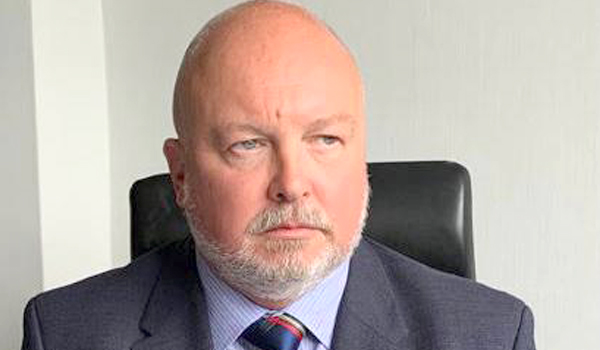Hundreds of officers on a ‘cost-of-living cliff edge’
Hundreds of police officers in Northern Ireland say they do not have enough money to cover essential household purchases every month.
And hundreds more report they sometimes do not have enough to pay for everyday essentials, according to a “grim and depressing” workforce survey by the Police Federation for Northern Ireland (PFNI).
The survey was conducted before Police Service for Northern Ireland (PSNI) officers were told they would effectively get a ‘zero per cent’ pay increase this year, causing “palpable anger” within their ranks (https://www.policeprofessional.com/news/palpable-anger-among-police-officers-over-zero-pay-rise/).
PFNI chair Mark Lindsay said many officers were facing “a cost-of-living cliff edge”.
One in ten – nearly 700 in real terms – say they never or almost never have enough money to cover all of their essentials on a monthly basis.
A further 18 per cent – close to a fifth of officers – say they occasionally do n0t have enough to pay for essentials.
Mr Lindsay, described the survey findings as ‘grim and depressing’ and called on the PSNI and the Department of Justice, to sit up and take notice.
“Hundreds of colleagues are facing a cost-of-living cliff edge and its frightening for them and their families,” he said.
“There’s a perception in the wider community that police are well paid but this gives the lie to that mistaken view.
“For over a decade now, police pay has been eroded, which means the Government doesn’t properly value what we do on behalf of the entire community. This needs to change and change quickly.”
The comprehensive PFNI workforce survey attracted 2,368 responses, which is more than a third of federated ranks, from constable to chief inspector.
Close to three quarters of officers said their pay was not enough to maintain their standard of living and six out of ten expressed dissatisfaction with their overall remuneration.
Mr Lindsay added: “There is much in this survey to digest.
“It has been a torrid few years for policing. The fact that so many face a cost-of-living cliff edge should be a wake-up call for the Northern Ireland Executive.
“I have already had productive discussions with senior PSNI in respect of many of the issues raised in the survey and hopefully we will start to see some outworkings, which will rectify many of the issues highlighted.”
The survey’s main findings include:
- Close to eight out of ten (77 per cent) maintain that PSNI management fails to take account of their views and opinions; 76 per cent do not believe that ‘things within the PSNI are handled in a fair way’.
- Nine out of ten officers (89 per cent) say morale within the service is low or very low. Sixty-six per cent said team morale was low or very low, while six out of ten said personal morale sat in the same category.
- Half of all respondents said that high-profile news stories on policing controversies during the Covid pandemic ‘had a negative effect on their ability to perform their day-to-day policing role’. Forty-five per cent said events had no effect. Sixty-one per cent stated that the events in question had a negative or very negative effect on how they feel about being a police officer. Thirty-two per cent reported no negative effect.
- Eighty-five per cent reported that the public perception of the PSNI as an impartial police service has been negatively or very negatively affected by high-profile events.
- A majority of respondents (56 per cent) also reported that their own perception of the PSNI as an impartial police service had been negatively affected by these events.
- Six out of ten officers believed that the impartiality of the employer had been negatively impacted; 39 per cent said events had had no impact.
- Just over a third said they had, or think they had, Covid-19. Three per cent required hospital treatment after having a positive antigen or antibody test. A further 14 per cent who tested positive did not require hospital treatment.
- Eighty per cent said new policing powers introduced during the pandemic were unclear. Seventy-two per cent said the degree of priority to officers during the vaccination programme was unfair.
- Ninety-two per cent of officers who were the subject of misconduct/disciplinary proceedings said they experienced a negative or very negative impact on their mental health as a result (67 per cent on physical health).
- Almost half of officers who responded (48 per cent) said the PSNI did not encourage officers to talk openly about mental health and wellbeing. Fifty-eight per cent said they would not feel confident about disclosing any difficulties with their mental health to line managers.
- Six out of ten (63 per cent) were dissatisfied or very dissatisfied with their pension – higher than levels who were unhappy with basic pay, allowances and overall remuneration.


